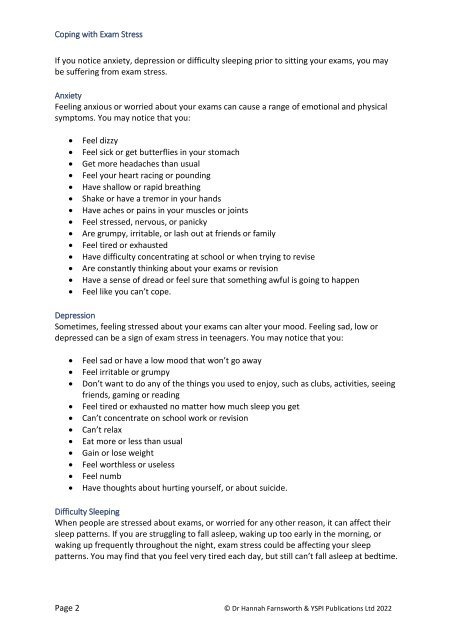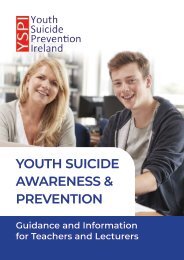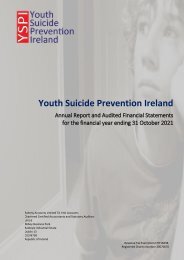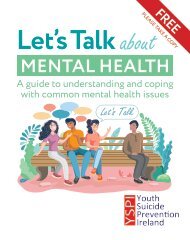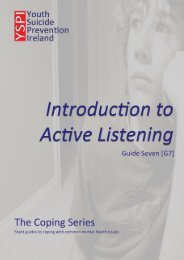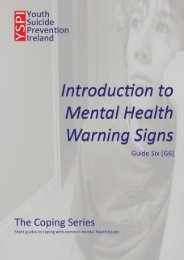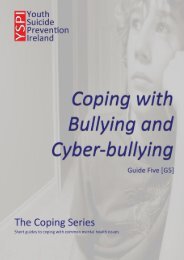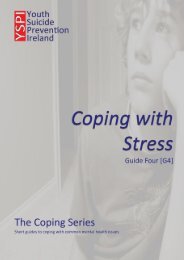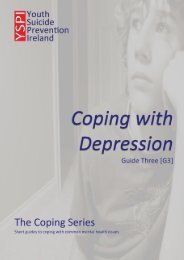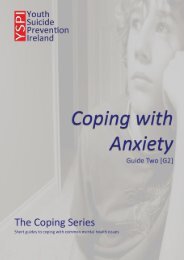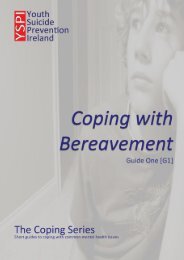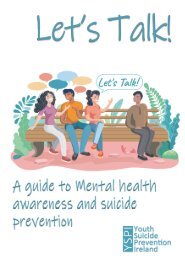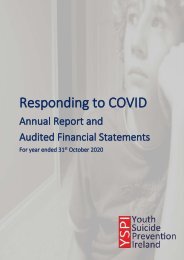Coping with Exam Stress
A new guide to coping with Exam Stress including how to recognise the signs of stress and the latest techniques to reduce stress, and much more. The guide is written by Dr Hannah Farnsworth and contains information for students, friends of students and parents.
A new guide to coping with Exam Stress including how to recognise the signs of stress and the latest techniques to reduce stress, and much more. The guide is written by Dr Hannah Farnsworth and contains information for students, friends of students and parents.
Create successful ePaper yourself
Turn your PDF publications into a flip-book with our unique Google optimized e-Paper software.
<strong>Coping</strong> <strong>with</strong> <strong>Exam</strong> <strong>Stress</strong><br />
If you notice anxiety, depression or difficulty sleeping prior to sitting your exams, you may<br />
be suffering from exam stress.<br />
Anxiety<br />
Feeling anxious or worried about your exams can cause a range of emotional and physical<br />
symptoms. You may notice that you:<br />
<br />
<br />
<br />
<br />
<br />
<br />
<br />
<br />
<br />
<br />
<br />
<br />
<br />
<br />
Feel dizzy<br />
Feel sick or get butterflies in your stomach<br />
Get more headaches than usual<br />
Feel your heart racing or pounding<br />
Have shallow or rapid breathing<br />
Shake or have a tremor in your hands<br />
Have aches or pains in your muscles or joints<br />
Feel stressed, nervous, or panicky<br />
Are grumpy, irritable, or lash out at friends or family<br />
Feel tired or exhausted<br />
Have difficulty concentrating at school or when trying to revise<br />
Are constantly thinking about your exams or revision<br />
Have a sense of dread or feel sure that something awful is going to happen<br />
Feel like you can’t cope.<br />
Depression<br />
Sometimes, feeling stressed about your exams can alter your mood. Feeling sad, low or<br />
depressed can be a sign of exam stress in teenagers. You may notice that you:<br />
<br />
<br />
<br />
<br />
<br />
<br />
<br />
<br />
<br />
<br />
<br />
Feel sad or have a low mood that won’t go away<br />
Feel irritable or grumpy<br />
Don’t want to do any of the things you used to enjoy, such as clubs, activities, seeing<br />
friends, gaming or reading<br />
Feel tired or exhausted no matter how much sleep you get<br />
Can’t concentrate on school work or revision<br />
Can’t relax<br />
Eat more or less than usual<br />
Gain or lose weight<br />
Feel worthless or useless<br />
Feel numb<br />
Have thoughts about hurting yourself, or about suicide.<br />
Difficulty Sleeping<br />
When people are stressed about exams, or worried for any other reason, it can affect their<br />
sleep patterns. If you are struggling to fall asleep, waking up too early in the morning, or<br />
waking up frequently throughout the night, exam stress could be affecting your sleep<br />
patterns. You may find that you feel very tired each day, but still can’t fall asleep at bedtime.<br />
Page 2 © Dr Hannah Farnsworth & YSPI Publications Ltd 2022


